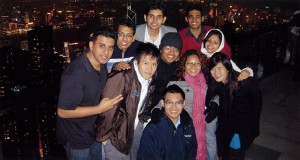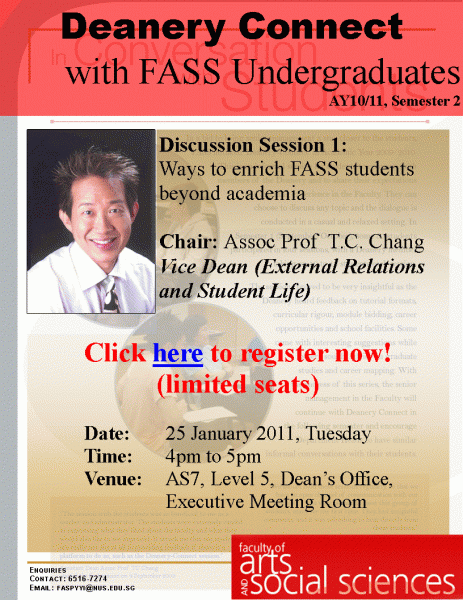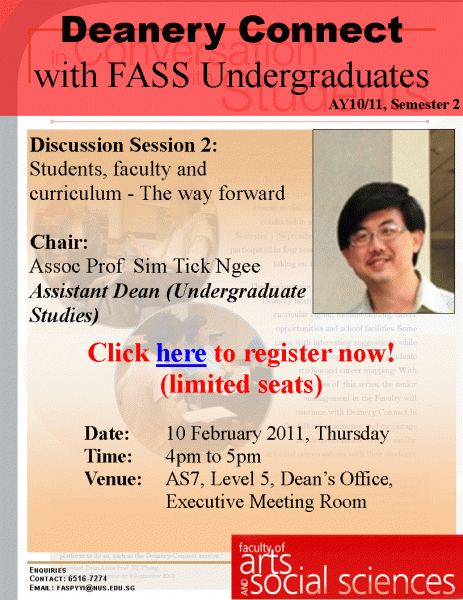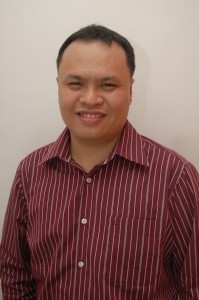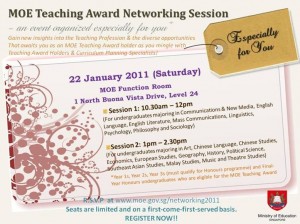Spotlight Singapore is an international exchange programme initiated by The Arts House in 2006 which serves as a cultural and economic gateway to new and emerging global markets through a holistic programme combining artistic, economic and educational activities. Objective is to create understanding, dialogue and collaborations between the arts and business communities of Singapore with their worldwide counterparts.
From 2010, Spotlight Singapore will be co-organised with Asian Culture Enterprise Singapore (ACES), a subsidiary of The Old Parliament House Ltd which through research, aggregation and incubation, facilitates an understanding and presentation of Asian arts and culture to a wider audience within Asia and the rest of the world.
The learning component will engage both Singapore and South Africa students to undertake business or collaborative projects in the form of a competition that will stimulate creative thinking, develop their analytical skills, and test the feasibility and practicality of their ideas across cultures. And looks towards developing a better understanding of tourism, culture and business opportunities in South Africa and also potential areas of research.
Students can expect to network with both business and student delegates from Singapore and Cape Town. The objective/learning outcome for students:
- to discover and experience the culture, heritage and the natural adventure of Cape Town.
- learning through the mentorship
- a real industry project experience through the Creative Business Competition
- networking with the key industry players in Cape Town
- networking with the other student delegates from Singapore and Cape Town
ABOUT THE CREATIVE BUSINESS COMPETITION (blog: http://www.spotlightsingapore.blogspot.com/)
The theme for the competition – Sustaining Tomorrow’s Future with Creative Business Today – is to challenge students’ creativity to find a solution to sustaining tourism in winter-time for Cape Town Tourism (National Tourist Organization).
Criteria: Students (in teams of 4) are required to incorporate in their proposal, how existing businesses, investors or entrepreneurs in Singapore could work together with their counterpart in Cape Town to implement the plan. Mentors will be assigned to the students to work with them on the project when they arrive on the 13th March 2011. (ITINERARY)
The 8D and 7N trip (13 to 20 March 2011) will cost $2,800. No funding is available at the moment, but organizers are working on securing some sponsorships to help defray costs.
Presentation: The proposal will be presented during Spotlight Singapore in Cape Town, to a panel from The University of Cape Town, WESGRO, and Cape Town Tourism.
Prize: Reimbursement of their local accommodation for the trip and opportunity to network with graduate students and young entrepreneurs from Cape Town who are seeking for potential business ideas to develop.
COLLABORATIVE ARTS
Spotlight Singapore also provides an opportunity for musicians and arts educators to interact through an exchange programme with the students and faculty staff from the University of Cape Town, College of Music. The collaboration will be presented on the closing night of Spotlight Singapore, to the delegates from both Singapore and Cape Town.
Eligibility:
– Music Students or Students who can perform with a gamelan ensemble
– Arts educators.
Registration deadline 31 Dec 2010 (http://spotlightsingapore.blogspot.com/p/registration-and-closing-date.html)
